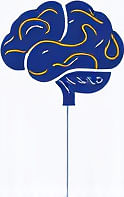Overcoming Remote Work Distractions with ADHD
 by Shanie Goodwin
by Shanie Goodwin
Adults with ADHD often face unique challenges in remote settings, such as home distractions and difficulty maintaining focus. This article explores practical strategies to improve productivity and achieve better work-life balance, drawing from supportive techniques tailored for neurodivergent individuals.

Remote work offers flexibility, but for adults with ADHD, it can bring added difficulties in staying focused. ADHD often involves heightened sensitivity to surroundings, making home environments particularly challenging. This can lead to reduced productivity and increased stress, yet simple adjustments can make a significant difference.
One key area to address is the physical workspace. A dedicated area helps separate work from leisure, reducing the pull of everyday interruptions. For instance, setting up a quiet corner with minimal visual clutter allows for better concentration. Consider using noise-cancelling headphones to block out sounds from family or neighbors, creating a more controlled atmosphere.
Time management plays a crucial role in managing distractibility. Breaking tasks into smaller, manageable segments can prevent overwhelm. The Pomodoro technique, which involves working for a set period followed by a short break, supports sustained attention without exhaustion. During breaks, engage in light physical activity, like a short walk, to refresh the mind and reset focus.
Tools can also provide essential support. Apps that block social media during work hours help maintain boundaries online. For example, selecting software with timers and reminders keeps tasks on track, offering gentle prompts rather than overwhelming notifications. Experimenting with different options allows individuals to find what best suits their needs.
Building Daily Routines
Establishing consistent routines fosters stability. Starting the day with a simple morning ritual, such as a cup of tea and a quick review of the day's goals, sets a positive tone. This structure helps combat the unpredictability that often affects those with ADHD.
Incorporating regular check-ins throughout the day maintains momentum. At the end of each workday, reflecting on accomplishments reinforces progress and builds confidence. These practices encourage a sense of control and reduce anxiety.
Seeking Support Networks
Connecting with others who share similar experiences provides valuable perspective. Online communities or coworker discussions offer advice and encouragement, reminding individuals they are not alone. Sharing tips in these spaces can lead to new ideas and mutual support.
Employers can play a part by offering flexible schedules or quiet hours, accommodating the needs of neurodivergent employees. Open conversations about challenges promote understanding and lead to workplace adjustments that benefit everyone.
Mindfulness and Self-Care
Incorporating mindfulness exercises, like deep breathing or brief meditation, aids in refocusing the mind. These methods help manage racing thoughts and improve emotional regulation, which is often a concern for adults with ADHD.
Prioritizing self-care ensures long-term success. Adequate sleep, nutritious meals, and regular exercise form the foundation for better focus and energy levels. Balancing work demands with personal well-being prevents burnout and supports overall health.
In practice, these strategies combine to create a more harmonious remote work experience. For example, one person might use a combination of a distraction-free zone and time-blocking to handle tasks more effectively. The key is personalization—finding what resonates individually.
Ultimately, embracing these approaches leads to greater productivity and satisfaction. By implementing practical changes, adults with ADHD can navigate their remote workdays with increased ease and confidence.
